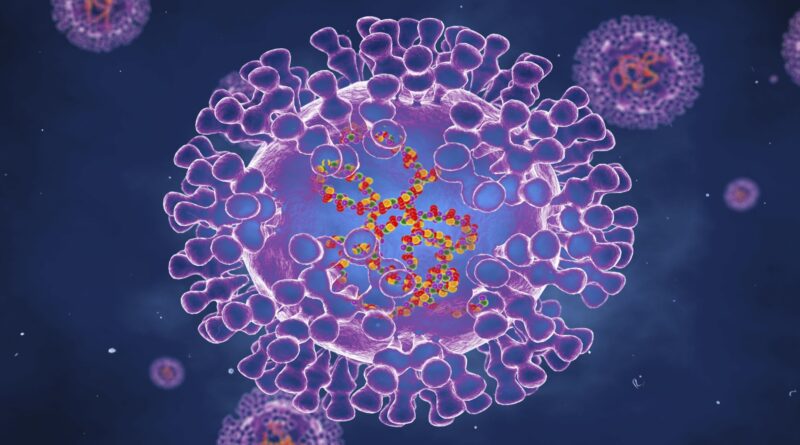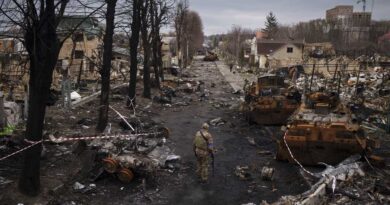Monkeypox outbreak: 92 confirmed, 28 suspected cases in 12 countries – WHO releases list
Geneva: Ninety-two confirmed and 28 suspected cases of Monkeypox have been reported so far in 12 non-endemic countries, the World Health Organization (WHO) informed on Saturday. These cases have been detected in Australia, Belgium, Canada, Germany, France, Italy, Netherlands, Portugal, Spain, Sweden, the UK, and the US.
Non-endemic countries are those where disease comes from the endemic regions through travel or by any other mode. However, the health agency said that reported cases thus far have no established travel links to an endemic area. Monkeypox endemic countries are: Benin, Cameroon, the Central African Republic, the Democratic Republic of the Congo, Gabon, Ghana (identified in animals only), Ivory Coast, Liberia, Nigeria, the Republic of the Congo, Sierra Leone, and South Sudan.
The WHO said that the detection of monkeypox cases with no direct travel links to an endemic area represents a highly unusual event. Surveillance to date in non-endemic areas has been limited, but is now expanding. WHO expects that more cases in non-endemic areas will be reported,” it said.
Monkeypox is a virus transmitted to humans from animals. Its symptoms are very similar to those seen in the past in smallpox patients, although it is clinically less severe. In non-endemic countries, one monkeypox case is considered an outbreak. The UN health organisation said the current available evidence suggests that those who are most at risk are those who have had close physical contact with someone with monkeypox, while they are symptomatic.
Symptoms
Monkeypox virus is transmitted from one person to another by close contact with lesions, respiratory droplets, body fluids and contaminated materials such as bedding. The incubation period of the virus is usually from 6 to 13 days but can range from 5 to 21 days. It is usually self-limiting but may be severe in some individuals, such as children, pregnant women or persons with immune suppression due to other health conditions.
Seoul/Tokyo/London: Amid growing concerns over the monkeypox virus, United States President Joe Biden – who is in Asia for the four-nation QUAD Summit – said the disease has the potential for a “consequential” impact if it spreads further. The monkeypox disease has caught Biden’s attention as experts have opined that it may be spreading after cases were detected in North America and Europe in early May. It may be noted that monkeypox disease is endemic in parts of Africa.
Speaking in Seoul before departing for Tokyo for the QUAD Summit, Biden said he still had to gather more facts about “the level of exposure” in the US but added that “it is something that everybody should be concerned about”.
It is a concern, in that, if it were to spread, it would be consequential. We’re working on it hard to figure out what we do, and what vaccine if any might be available for it,” Biden told reporters before boarding Air Force One in Seoul.
The disease is common in parts of Central and Western Africa with thousands of human infections reported in the last few years, but it has rarely been diagnosed in Europe and North America. The disease’s fatality rate is very low and most patients recover in a few weeks.
According to the World Health Organisation (WHO), 92 confirmed cases of the disease were reported in countries where monkeypox is not endemic, as of Saturday.
The virus’s transmission normally takes place from animals to humans, and symptoms are nearly identical to smallpox but less severe clinically.
Community transmission? Absolutely, says UK official
However, the United Kingdom has now reported local transmission of the monkeypox virus. A health official said that the country has recorded daily infections of the rare virus which are not related to any travel to West Africa.
UK Health Security Agency (UKHSA) chief medical adviser Susan Hopkins responded by saying “absolutely” when asked if Britan was witnessing community transmission of monkeypox.
“We are finding cases that have no identified contact with an individual from West Africa, which is what we’ve seen previously in this country,” she told BBC television. “We are detecting more cases on a daily basis.”
The UK had announced 20 cases on Friday after the first case was recorded on May 7, and the latest figures would be issued today.
The risk of the general population remains extremely low at the moment, and I think people need to be alert to it,” Hopkins said.
Belgium announces quarantine; first case in the Middle East
Meanwhile, in other developments, Belgium has announced a 21-day compulsory quarantine for people infected with monkeypox virus, thereby becoming the first country to announce such a measure.
Further, the authorities in Israel have detected the country’s first case of monkeypox. The disease was diagnosed in a person who had travelled abroad. The authorities are also looking for other suspected cases.
It is believed that the case recorded in Israel is the first identified infection of monkeypox in the Middle East.




